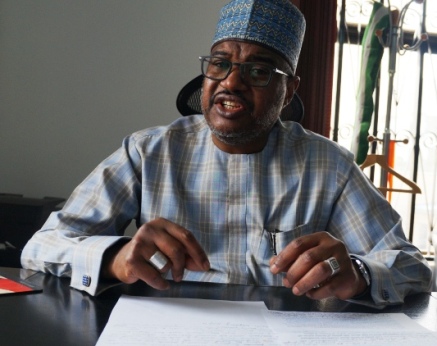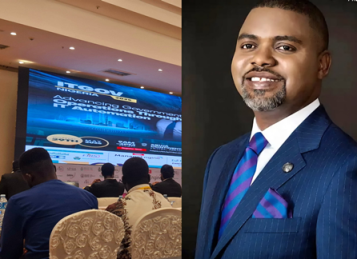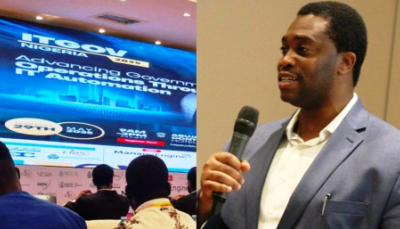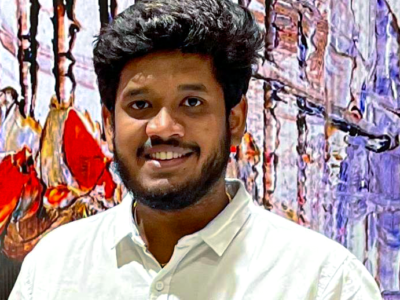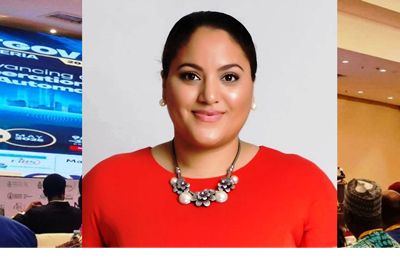Backbone Connectivity Network (BCN) is synonymous with connectivity in the north of Nigeria. Originally licensed in 2004 to provide Metropolitan Fibre Access and National Long-Distance Transmission services with additional licenses to provide internet services and unified communication solutions, BCN is an InfraCo with focus to cover all of the north. In this interview in Abuja, MD/CEO of BCN Mr. Ibrahim Dikko shares with IT Edge News, Olusegun Oruame and Doris Minimah, the company legacy infrastructure deployment in the north and plans to connect all 19 states in the three geo-political zones of northern Nigeria. Recently listed as one of the fastest growing and ambitious companies in Nigeria by the London Stock Exchange Group (LSEG), BCN boasts of over 2,000km of wholly-owned fibre infrastructure within the North-Central and North Eastern parts of Nigeria and has unfolded a buildout plan for about 10,000 km broadband fibre optic network beginning 2019 to link about 200 points of access across all local government areas in the seven north western states of Jigawa, Kaduna, Kano, Katsina, Kebbi, Sokoto and Zamfara. In its 15 years operation, BCN has created impact more than it had originally designed, said Dikko who also spoke about its recent partnership with Internet-giant, Google to rollout free wifi across the north beginning with Abuja. He believes “corporations are not purely profit making organisations; there’s also a social aspect to the business and a social responsibility to doing business.” For him, companies who cannot impact on people and environment cannot be described as responsible corporate. BCN was founded to create and deliver values, he told IT Edge News.
Your collaboration with Google here in Abuja is designed to ignite free wifi internet access across the entire north. From feedbacks, would you say you have achieved any impact in the way people now access the internet?
I think we have created significant impact. I will start from my very first experience in Wuse market where we were doing a final pre-launch inspection and I met a lot of young kids who had just finished their work for the day, they were basically young wheel barrow pushers and some were sitting under the shade of the base stations that we have in Wuse market and I was speaking to them. I said: ’look do you know what this is? They answered that it’s network and that it was a mobile base station. So I explained to them that it was a free wifi; they were amazed. I took them through the whole log-in process. I could see their amazement. I’m struggling to find the words to describe their excitement, their amazement and their enthusiasm when they picked out their phones and logged into the free wifi. For me, it was a fulfilling experience and it showed to me not just a need but the impact that such an initiative can provide to people. We think data is cheap but data is not cheap. This gives incredible access to people who ordinarily cannot afford to go online but also even if they can afford to go online, they only have intermittent access to this extremely viable platform. Our focus is to extend this product to those locations that are high foot-fall public spaces that we feel will impact people both from a transactional point of view and being able to enhance what they do in those spaces. The idea is to deepen access whether its transactional in the market places, or motor parks where you want to communicate to loved ones, or hospitals where you need to send and receive information, or schools to give students opportunity to access sites that can enhance their learning experience – all these are key focus areas where this product will add value to what people are doing and to their lives.
Dikko: “We will continue to invest in both our people, in both our assets to ensure that we are able to provide the necessary platform as the engine for this. We will continuously be improving and investing in [our] infrastructure to make it relevant.”
Describe your collaboration with Google: is it just a social investment scheme or is there anything more to it?
This product has many beneficial consequences both to us, to Google and at the end of the day, to the users. Wifi traditionally is a very difficult product to monetize, the fact that Google and ourselves have found a way to deliver this product to people free and also easily accessible to them, I think it is wonderful; it is a testimony to the innovativeness and hard work of both companies because we know that this product impacts people positively both from a transactional point of view, as it helps people create value, and from the social impact point of view because it lowers the bar considerably for internet access to the unserved or undeserved people; it enhances access to this huge gateway of information that is available out there that ordinarily people wouldn’t have. It has developmental aspect to it, it has economic aspect to it, it has social impact to it. It has many dimensions and we are proud that it is able to deliver on such a variety of positives to the end user.
As an operator in the north of Nigeria for over 15 years, you’ve extensive network buildout and experience. Is it conceivable that the kind of relationship you have with Google can be replicated with governments in the north through an agency like the New Nigeria Development Company (NNDC) to provide internet access to areas like hospitals, schools and markets across the entire north?
First of all it is possible. Actually, it is already something that we and the NNDC are already working on. NNDC has been the development finance institute for northern Nigeria – all of the 19 states. A key aspect of their mandate is the social, economic development of the north, so we have been working with them on quite a number of significant projects. The foundation of whatever technology that you want to deploy is based around physical foundational infrastructure like having broadband network traversing the entire north. The NNDC is our partner in the North West InfraCo, they are part of the consortium, they are also a partner for the North East InfraCo licence, they are also with us in the North Central that we are bidding for. The whole idea is to have broadband fibre infrastructure in all the local government areas in the north, this enables you to now layer on initiatives that supports socio economic development and with that we are looking at developing and creating tech hubs across the north. We have had advanced discussion with a particular state in the north and already had deployed wifi in the state capital in certain locations. Some of the things that we are talking about are already happening, there is a clear synergy between private operators like us and government institutions like the NNDC which is providing the right partner to BCN even though they are government-owned; they are actually quasi private company with a clear relationship with state governments on certain initiatives. At state level, we are partnering with Kaduna state to provide metropolitan network in the three c of cities Kaduna state which are Kaduna, Zaria and Kafanchan including a Tier III data centre. This shows commitment of both the government, NDDC and us in creating the right tech platform for all of these initiatives to impact the north on a social with economic basis.
You are going to be 15 years next month (April), what will you regard as your milestones?
I guess to start from the very beginning BCN has always been a pioneer. We were the first company licensed in this country to build metro networks and long distance networks. From the very beginning, we acquired two licences: the national metropolitan operator license and the national long distance operator license and we were the pioneer network operator in Abuja. We were the first people to lay fibre in Abuja. Today, we are the first company to update fibre, metropolitan fibre, as they say fit for purpose network, in Kaduna. We have an engine point 2 network in Kaduna which is the first in northern Nigeria. I dare say also in the country from inception. BCN has always prided itself as a pioneer and an innovator. It has its challenges, we commend and are extremely grateful to NCC the regulator and actually the Office of the Vice President who has been a very strong advocate and worked very hard to address the bottlenecks in the industry and helped create a fantastic enabling business environment for network operators particularly to key areas that have been challenging to operators. One such challenge is right of way, we now have harmonized national right of way at both federal level and state level on 145 naira per metre. This has already been implemented by some states and we are proud to say that we have been beneficiaries at least in two states in the country which are Kaduna and Niger states. I believe that more are aligning with that harmonization. On multiple taxation, I think they have worked very hard and now they are trying to streamline the tax code and remove double or triple tax and levies sometimes via multiple government agencies. The NCC and Office of the Vice President have worked tirelessly and I think they deserve our commendation. But there are still some more things to deal with – all these are on-going challenge, including the issue of funding that the regulator and the industry are working on. Funding generally has been expensive and also short term. The industry needs long term funding and right conditions to really be able to deploy massive infrastructure. The right funding structure must include long term, low cost fund to allow operators meet corporate goals in terms of network expansion. Obviously also, this will include access to right foreign exchange. The regulator has also occasioned the initiative for InfraCos to rapidly scale the broadband infrastructure in the country and to deliver on those licences within a time line – we are looking forward to that. By and large, today, I think that there has been considerable improvement in the ease of doing business. We just need to work on certain key cost items to ensure that we are able to deliver these services at an affordable prices to our client.
Dikko: “The industry needs long term funding and right conditions to really be able to deploy massive infrastructure. The right funding structure must include long term, low cost fund to allow operators meet corporate goals in terms of network expansion. Obviously also, this will include access to right foreign exchange.”
Does the sector need a telecom infrastructure bank or a funding mechanism within a banking framework to address the funding challenges you mentioned now?
I think that there’s need for some sort of funding intervention, some countries have some forms of telecom banks or infrastructure banks to address these challenges. There are quite a number of available options. We need to look at what can help us meet the requirements of the industry within the time frame that is needed in the industry at the right price point, and at the right tenure that is needed. For me, that is the most critical thing and we shouldn’t get fixated on any one solution. Banks are good but banks have to work within a regulatory environment. Are there other means to achieve the same purpose in a more efficient and a quicker way? I think there are. We need to open our minds to various options available in the financial system to help us achieve these vital challenges.
“BCN was born to be a pioneer and we intend to remain that way, we always look ahead and there’s a saying that I find to be very true and it is constant in our philosophy in BCN: “Today is yesterday’s future just like tomorrow is today’s future.’’
If you put all these challenges you have itemized together, which reflect the realities of the market, are you optimistic on being able to deliver on your InfraCo licence within the time frame?
We are optimistic. Being a network operator for 15 years has helped us a lot to gain considerable experience on how to build and deploy networks. We understand the processes to go through. I will say that we have paid our school fees in that regard, so we have clarity on what to do. We’ve also got letters of interest from financial institution to support us, we are a known commodity. We know what we are doing and people are confident that we can deliver on our promises, they’ve seen how we work, and they see that we understand the market. We will continuously work with whether it is the government or the regulator on ways that this objective as it concerns our InfraCo licence will become a reality.
Sometime last year, you mentioned plans to rollout about 10, 000 kilometres of fibre optic across some states in the north, is this still on course?
The 10, 000 kilometres of fibre optic is regarding the northwest InfraCo. The idea is to roll out fibre across 186 local governments in the northwest. Basically, the rollout plan for northwest InfraCo is to cover every local government in the north; to have point of presence in every local government area in the northwest in the course of seven states which is Kaduna, Kano, Jigawa, Katsina, Zamfara, Sokoto, and Kebbi. We are currently bidding for the north central InfraCo in partnership with Galaxy Backbone. We are in all the three zones in the north and we envisage that the fibre network for the northwest will be around 10, 000 kilometer both metro and long distance networks. The network we intend to deploy is the next generation engine point 2 network that is currently being deployed worldwide. We envisage that the project will kick off Q4 this year.
“The NCC and Office of the Vice President [have] helped create a fantastic enabling business environment…. we now have harmonized national right of way at both federal level and state level on 145 naira per metre. This has already been implemented by some states and we are proud to say that we have been beneficiaries at least in two states in the country which are Kaduna and Niger states.”
Let me get this right, you spoke earlier of Tier III data hosting centre for Kaduna state. Is the data center BCN’s investment or is it for Kaduna state?
The Tier III data centre is a BCN investment and we are in partnership with Kaduna state. Kaduna state is committing to be an anchor tenant in the data centre just that it will be owned and protected by BCN. It will be the first carrier neutral Tier III data centre in northern Nigeria. It will further consolidate Kaduna as a tech hub of northern Nigeria – that’s a pure BCN initiative.
Looking ahead the next 15 years, does Nigeria appear to still remain good business case for you and what really gets you worried in those lonely times as a CEO managing a network in this country with its challenges?
My view is that we are in a sector that is used to having shorter and shorter dynamic changes. This year, everywhere you go, they are talking about 5G and how transformative 5G will be. Already, South Africa has deployed as we speak. Even though Africa came late into the tech space, but today you can see the rapid progress Africa is making. We should be very mindful of one trajectory that Africa has, that our entry into the tech world or into the IT space has been from a mobile perspective and this will continue and the future of tech is mobile. In the last 20 years, tech has transformed sectors that you would have thought were previously non-tech. I will give you an example, the hotel business used to brick and mortar but today, the world’s biggest hotel chain has no brick and mortar. Tech is disrupting and liquefying sectors, disrupting models as we know it, creating jobs that we haven’t thought of. Today, how do you classify an Uber, what will you call Uber? He is not a taxi driver; he is not a professional transporter as you used to know him. During the day, he is an accountant in the office and at night he is an Uber driver so, how will you describe him? But one thing that is constant and consistent in all this is a communication need, need for technology – that means there’s a space for professionals like us to enable businesses, to enable people, to create the platforms that people can leverage to deliver solutions that can impact and create wealth. We will continue to invest in both our people, in both our assets to ensure that we are able to provide the necessary platform as the engine for this. We will continuously be improving and investing in this infrastructure to make it relevant.
“We know that there will be new jobs that will be created that we can’t even dream of. We are going to prepare ourselves for those challenges to be able to rise up to the dynamics of the market.”
Today, we are creating an integrated platform from data centre all the way to the middle distribution layer from the upstream to the mid stream. We are creating the platform for even last mile; our vision is to provide solutions all along the value chain, and so, we will continue to invest in this infrastructure to make it relevant, we need to invest in our people so that they can continually innovate so they would be able to give clients the right solutions at the right price. We know that there will be new jobs that will be created that we can’t even dream of. We are going to prepare ourselves for those challenges to be able to rise up to the dynamics of the market.
You remember, the first statement I made was that BCN was born to be a pioneer and we intend to remain that way, we always look ahead and there’s a saying that I find to be very true and it is constant in our philosophy in BCN: “Today is yesterday’s future just like tomorrow is today’s future.’’ We are always preparing for tomorrow, we are always preparing for the future. We understand that we are where we are today because of what we did yesterday and we are very much aware that what we do today will be what will take us to tomorrow.
As a CEO, the things that I reflect upon both from a personal basis and from a corporate basis is the belief that corporations are not purely profit making organisations; there’s also a social aspect to the business and a social responsibility to doing business. I will hate to be part of a corporation that what it produces has no impact in peoples’ lives in a positive way. I like to think that what we do creates value to our clients and to society. In my free time, I reflect on how we can continuously improve on that and to ensure that everybody in Nigeria is on BCN’s network and everybody realizes his potential, leveraging on our products and services. Personally also, I realised the responsibility that I shoulder in terms of delivery to expectations of my stakeholders, to my staff who expect leadership, who expect that we are moving in the right direction, who also expect that at the end of every month they get paid and also working in an environment that is safe and conducive and to my shareholders who expect to get dividends, to the government that expects to get tax revenue, so the responsibility of meeting and exceeding the expectations of my ecosystem are things that I ponder on. I continuously think of how to ensure that I am able to meet those expectations in a responsible and ethical manner.


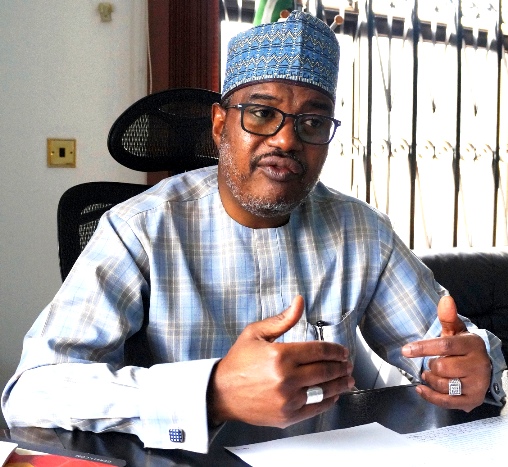
![Dikko: “We will continue to invest in both our people, in both our assets to ensure that we are able to provide the necessary platform as the engine for this. We will continuously be improving and investing in [our] infrastructure to make it relevant.”](http://itedgenews.africa/wp-content/uploads/2019/04/BCN-MD-Dikko.jpg)


